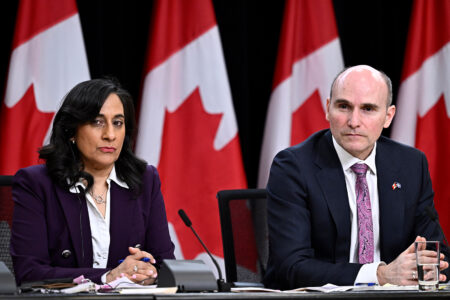
Anniversaries are often occasions to look back — to celebrate milestones, to recall memories and to take stock. They also prompt us to look forward — to reflect on challenges that lie ahead, to reassess priorities and to set new objectives.
In a discussion of which of these two approaches to take for this special anniversary issue of Policy Options, my colleagues and I quite quickly decided on the second. The IRPP’s 40th anniversary seemed to be an ideal time to invite a group of leading Canadians to draw on their expertise and experience to address some of the key public policy challenges facing our country. The date 2020 on the cover of this issue is part way between the 5and 10-year timeline we asked the authors to consider.
In the spirit of looking forward, we have included articles from some younger Canadians. We invited the heads of public policy schools across the country to ask one of their most promising students to submit an outline. We then selected four young authors to share their reflections on some key contemporary issues.
We open with the results of an exclusive IRPP-Nanos Research poll, which surveyed Canadians on what issues are important to them as we focus on the public policy challenges we face as a nation.
Our first policy-oriented article is by Jim Prentice, a former federal Conservative cabinet minister. He analyzes some of the main trends in global trade, and argues that further expansion into the emerging markets of Asia should be a national priority. Saskia Tolsma also looks beyond our boundaries to make a case for the country’s transition to becoming an energy superpower.
Canada’s international stature and domestic progress are linked to the human capital and creativity of the population. In this context, David Naylor explores some of the pitfalls in the public discourse about innovation and outlines policy options to unlock Canadians’ innovative potential. Ian Brodie follows with a proposal to launch a “top 10 global challenge” to encourage one or more Canadian universities to reach the upper tier in an internationally recognized ranking of universities.
Although the federal government plays an important role in a number of the policy fields covered here, many pressing issues require the collaboration of other orders of government. This is certainly true for the issues, some of them quasi-constitutional in nature, addressed by former Quebec cabinet minister Benoît Pelletier. Then David Dodge, Peter Burn and Richard Dion analyze federal-provincial fiscal arrangements and propose changes in light of fundamental structural changes in the Canadian and global economies. Next, Roger Gibbins explores the implications of the shift in the centre of economic and political gravity toward western Canada for the national public policy agenda. Jean-Philippe Gauvin provides another look at intergovernmental relations, with a focus on some of the process changes that have been taking place over the past several years.
Recent decades have witnessed important developments in the place of Aboriginal peoples within an evolving Canada and point the way toward future engagement. Mary Simon reflects on some of the achievements “north of 60” and outlines further steps to forge a mutually beneficial, win-win relationship between Inuit and Canada. Recalling the unfulfilled promises of various commissions and similar bodies, Roberta Jamieson calls for sustained investment in indigenous education and, more broadly, for a transformation in the relationship between Canada and Aboriginal peoples. Dominic Giroux also underlines the importance of concrete measures to improve the educational outcomes of First Nations youth, suggesting as an example the progress made with regard to the education of official language minorities since adoption of the Canadian Charter of Rights and Freedoms 30 years ago.
With some 20 percent of its population born outside the country, Canada’s society is much more diverse than it was when the IRPP was established. This is a major strength, as Ratna Omidvar and Sandra Lopes demonstrate, but balanced policies are required so that newcomers make an optimal contribution to the country’s economic and social prosperity.
The last group of articles covers family policy. Krystal Kehoe MacLeod argues we should pay greater attention to the potential benefits of integrated care programs for seniors. Deborah Liu surveys the approaches to child care in Quebec, Alberta and Manitoba, noting that social and cultural factors also affect women’s participation in the labour force.
We close with columns by our regular contributors Todd Hirsch and Alain Noël.
In closing, I would like to express my appreciation to Graham Fox for the key role he played in approaching potential authors for this issue, and to France St-Hilaire for her thoughtful suggestions. Few “candidates” turned us down, which must testify to the value of Policy Options as one of the IRPP’s core publications. I hope that readers will find a good deal here to stimulate their thinking about the policy challenges addressed in these pages.
Photo: Shutterstock







